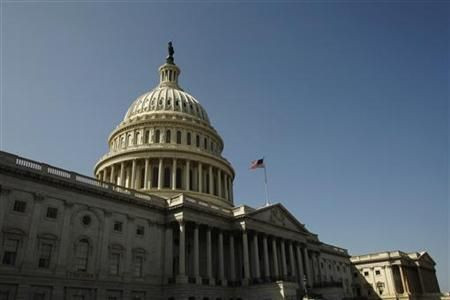Stakes Too High To Ignore Democracy’s Retreat
Opinion

Western thinking about freedom and democracy is marked by a set of optimistic assertions, which include the following:
First, the global advance of freedom and democracy marches ever-onward. Second, economic and political freedoms in a particular nation walk hand in hand, each reinforcing the other. Third, the more a society (particularly its middle class) enjoys economic growth and the higher living standards that normally come with it, the more citizens will push for greater political freedom.
Generally, the assertions have proved true. The number of democracies around the world has grown from zero in the mid-18th century to about 100 today. Economic growth has, in fact, spurred demands for more political freedom.
But, of course, the world is far more complicated than simple assertions would suggest and, despite the obvious progress, democracy has met its share of challenges and setbacks over the years.
Today, as Joshua Kurlantzick explains in his timely and thoughtful new book, “Democracy in Retreat,” democracy is again on its heels -- and its future progress faces a particularly vexing series of hurdles.
The implications are enormous not just for hundreds of millions of people who could be forced to live under authoritarian rule for decades to come. They’re enormous as well for the United States and its allies because a freer, more democratic world will likely be a safer and more prosperous one.
Let’s put things in perspective:
Of the world’s 195 countries, Freedom House ranks 90, or 46 percent, as “free,” according to its latest annual Freedom in the World survey, while the number of electoral democracies stands at 117, or 60 percent.
To be sure, these figures represent huge improvements over the situation of just a few decades ago. In 1972, when Freedom House launched its survey, just 44 of the world’s 151 countries, or 29 percent, were free. In 1989, electoral democracies numbered just 60 of 167 countries, or 41 percent.
Nevertheless, progress has clearly stalled of late, and a retreat is gaining momentum. The number of free states hasn't risen since peaking at 90 in 2006. Worse, electoral democracies have shrunk in number since hitting their high-water mark of 123 in 2005; in fact, they’re fewer in number than the 118 of 1996.
While the advance of democracy is stalling, public support for democracy is also falling across the developing world.
“This democratic decline,” Kurlantzick writes, “is not concentrated in one region or one continent, and, unlike previous waves of democracy regression such as those occurring in the 1920s and 1930s, today’s decline includes a far wider array of nations, from more regions of the globe, and is much less likely to be stopped.
“More important, many of the countries that are regressing from democracy are regional powers, including Russia, Kenya, Thailand, Argentina, Senegal, the Philippines, Hungary, Venezuela, Mexico, Nigeria, and many others. Their examples matter more to their regions than those of smaller, less influential states.”
What’s going on? Several things, as Kurlantzick explains.
For one, America’s struggles with wars and budget deficits has given the United States the look of a declining power, one that can no longer call the shots on the world stage as it once did and will have to make room for a rising China, a stubborn Russia, and emerging regional powers.
For another, the global economic crisis raised widespread doubts about the stability and payoff of democratic capitalism, prompting Third World nations to consider alternative paths to prosperity.
For still another, China, and to a lesser extent Russia, are offering a form of “authoritarian capitalism” through which they allocate the benefits of economic growth to their people without giving them more political freedom.
Because the transition from autocracy to democracy can be a messy one -- distinguished early on by slow economic growth and political corruption -- tens of millions of disillusioned people now long for the return of authoritarian rule, if only for the stability it will bring.
“In the late 1990s and early 2000s, the lack of economic growth began to sour working class men and women on democracy,” Kurlantzick writes. “But in many developing nations the middle classes turned against democracy too.”
Beyond its recent military, fiscal, and economic troubles, the United States has hurt itself further on the world stage by the oft-clumsy way it has promoted democracy.
It has focused, for instance, too much on elections as the bottom line of democracy, setting the stage for would-be autocrats to win first-time national elections and then, once in office, create a new authoritarianism. It also threw its support behind so-called “big men” like Afghanistan’s Hamid Karzai, celebrating their victories while ignoring the widespread corruption that made their victories possible.
Reversing the disturbing trend of democratic decline won’t be easy. Nor will it all be in America’s control.
The West must prove that democratic capitalism remains a reliable path to prosperity and a preferable model over its alternatives. That, in turn, will require a return to the strong growth of earlier decades and to a prosperity whose benefits are less concentrated at the top and better shared across social strata.
The U.S. also must prove better at promoting democracy, both alone and with our allies. Rather than seek quick victories, we must remember that creating the infrastructure, and instilling the values, of real democracy is a long-term proposition.
The work is arduous, but the stakes are high. Let’s get to it.
Lawrence J. Haas, former communications director for Vice President Al Gore, is a senior fellow at the American Foreign Policy Council and author of “Sound the Trumpet: The United States and Human Rights Promotion.”
© Copyright IBTimes 2025. All rights reserved.





















